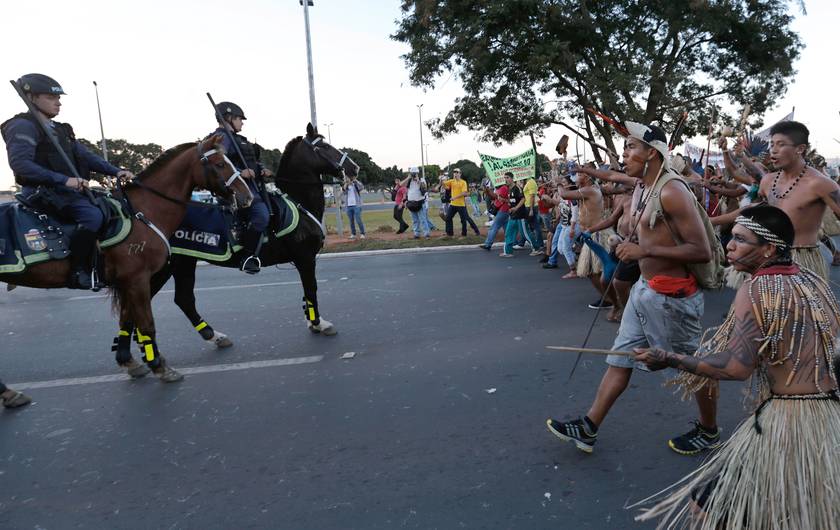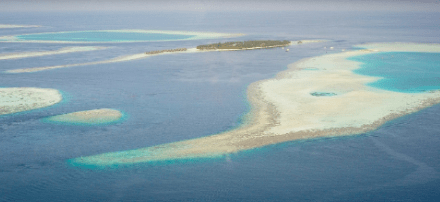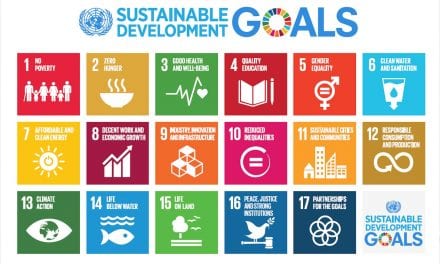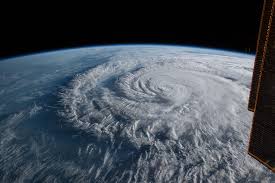In the summer of 2018, FUNAI, Brazil’s National Indian Foundation, posted two videos, both of which received millions of views, of uncontacted indigenous peoples living within the state’s Amazon rainforest on protected territories. [1] The two videos, recorded without the knowledge of the native people and published onto the Internet without their consent, raised concerns regarding what it means to respect the dignity and privacy of those groups who wish to remain separated entirely from Brazilian society and government, as well as the extent to which awareness of these protected peoples could become harmful. This incident reflects the questions currently circulating within Brazilian public discourse regarding the role of Brazil’s indigenous peoples within Brazilian culture, society, and government, especially those who remain uncontacted by other populations. As Brazil rushes into the economic spotlight, some groups and citizens have become increasingly critical of what they perceive to be indigenous Brazilians’ lack of societal contribution and harboring of lands necessary for Brazil’s further development. This has resulted in demands for the assimilation of indigenous groups and a push for legislation that limits their territory. These demands are a blatant violation of the indigenous peoples’ rights and would cause irreparable damage to Brazil’s ecosystems. Brazilians should vehemently reject these proposals and address the ongoing aggression towards indigenous populations by the Brazilian government.
These demands against the indigenous populations can be exemplified within Brazil’s newly elected, conservative president, Jair Bolsonaro. Leading up to his election, Bolsonaro has been highly critical of government aid programs to indigenous peoples and was, at one point, even facing up to three years in prison for hate speech charges brought about partially from comments made against native groups. [2] In interviews, Bolsonaro chastised indigenous peoples for being lazy, perpetuating the false belief amongst some portions of the Brazilian population that indigenous peoples living on protected territories fail to contribute anything constructive to the society at large. [3] Although Bolsonaro did receive backlash for his obtuse comments during his campaign, he was able to effectively appeal to his target supporters, namely farmers, miners, and unemployed Brazilians, who view the demarcation of indigenous lands as harmful to their own economic and political interests.
President Bolsonaro cemented this stance within his first few days in office when he declared an executive order, which will expire in 120 days unless ratified by Congress, that transferred the regulation and establishment of native reserves from FUNAI to MAPA, Brazil’s agricultural ministry. [4] In addition, Bolsonaro moved the Brazilian Forestry Service, which regulates the protection of Brazil’s forests by maintaining that guidelines are met regarding sustainable use, from the Environmental Ministry to MAPA as well. [5] By enacting this order almost immediately after entering office, Bolsonaro sent the clear message to his supporters and opposition alike that he does fully intend to fulfill his campaign promises to open indigenous and preserved territories for agricultural development.
During his campaign, Bolsonaro repeatedly cited the disparity in population and land area as a justification for the reduction of indigenous territories. According to a tweet by the president, “Fewer than a million people live in those isolated areas of Brazil, in reality, and they are exploited and manipulated by nongovernmental organizations. Together, we are going to integrate those citizens and take care of all Brazilians.” [6] While it is true that native peoples only account for less than one percent of Brazil’s citizens, these protected territories still belong to 900,000 citizens and 305 unique tribes. [7] Additionally, the president’s promise to “integrate” the citizens in order to gain access to their land for economic production raises memories of forced assimilation of the tribes, which occurred as recently as during the military junta of the 1970s and 1980s; during this time, their ancestral lands were used for mineral extraction or agricultural purposes. [8]
With the return to democracy in 1988 from the military junta, Brazil passed a new Constitution, within which native peoples were granted original ownership rights to their ancestral lands and the government vowed to protect indigenous groups’ right to their own territory. [9] While this initially appeared to demonstrate a positive alteration to the Brazilian public’s attitude towards indigenous peoples, political trends in the decades since demonstrate that previous attitudes surrounding native rights and land ownership experienced few major changes. It is estimated that one Amazonian tribe has disappeared every year for the past century, a trend that has failed to cease with the establishment of the reserves. [10] Despite these alarming statistics, in July 2017, under former- Brazilian President Michel Tremer, lands could only be designated as indigenous if the native groups were living on them during 1988. [11] With this policy, which ignores the history of dispossession under the military junta, Brazil’s central government was able to deny virtually all pending land designations. Also, in recent years, FUNAI has faced a decrease in funds, resulting in difficulties for indigenous peoples to access to food security, healthcare, quality educational services, and equal economic opportunity. [12]
Currently, miners and farmers enter protected territories illegally in order to take advantage of the land’s plentiful resources. Because some indigenous groups lack access to even basic resources, some groups of miners and farmers are able to gain access to the land through promises of a percentage of the profits or other economic benefits. [13] However, although this money has been beneficial to allow native communities to gain access to necessities that have improved the quality of life on the reserves, mineral extraction and agricultural practices have polluted the waterways and ecosystems upon which these groups primarily depend, cultivating illness within the tribal communities and driving away animal food sources. [14] Additionally, some illegal loggers will create wildfires in order to hide the evidence of their illegal activity, further destroying the Amazonian ecosystem and destroying the way of life of indigenous communities. [15] The disruption and destruction of the indigenous people’s primary food and water sources not only prevents them from maintaining their cultural lifestyles, but also forces the people to assimilate more heavily into Brazilian society in order to maintain that their basic needs are satisfied. Thus, the miners and loggers are indirectly removing the right of independence granted to the tribes. Greater integration into Brazilian society could additionally cause increased loss of indigenous language and diversity, as communities would be forced to adapt to Brazilian culture and language rather than their own. Therefore, although some indigenous peoples are provided access to resources that they would otherwise be unable to receive with current government funds, often the environmental degradation associated with these illegal projects only leads to further devastation for these already exploited communities.
Many of these illegal projects are manned by unemployed Brazilians in desperate need of work, a major problem for a country whose unemployment rate has skyrocketed to 12.3 percent in the past few years, as an additional six million Brazilian citizens became unemployed from 2014 to 2018. [16] By promising to open up more protected territories for agriculture and development, Bolsonaro makes an appealing argument to relieve the financial burden of unemployment on these individuals and to boost the Brazilian economy through the creation of more jobs and the use of previously undeveloped land. This has been widely successful as Bolsonaro has clearly been able to garner the support of many of Brazil’s agricultural workers through his promises of greater access to land development with less regulation. According to Alessandro Fernandes Pimenta, a cattle rancher, Bolsonaro has earned his support through promises to “cut taxes” and make the process of land acquisition “less bureaucratic.” [17]
However, despite the clear immediate economic benefits to Brazil’s economy, it must be noted that continued, extensive, and expedient development of the Amazon with limited regulation regarding environmental consequences is in no way sustainable for Brazil in the long-term. Researchers are already expressing concern that, unless immediate changes are made to Brazil’s environmental policies, the Amazon rainforest is very close to approaching a point of irreversible damage. Researchers estimate that when 20 to 40 percent of the Amazon rainforest has undergone deforestation, the ecosystem will collapse and no longer be able to support itself due to a lack of available vegetation; the Amazon currently is at roughly 20 percent deforestation. [18] As the placement of indigenous peoples on Amazonian territory is an important factor in maintaining environmental integrity, the threat of removing the reserves system not only violates of the rights guaranteed to indigenous Brazilians in the country’s constitution, but also risks the loss of a major natural resource that benefits humans around the world.
It is crucial to note that indigenous groups have been highly vocal in their reproach to the President’s actions and intended policies regarding native Brazilian peoples. Notably, in April 2018, approximately two thousand indigenous Brazilian citizens protested in the state’s capital against the government’s encroachment on their constitutional rights. [19] In addition to their opposition to government policies regarding land dispossession, another key concern expressed by the protesting native groups was the increasing violence between indigenous peoples and businesses who wish to use land under indigenous protection. [20] Adriano Karupina, a member of the Karipuna tribe, which is often subject to violence from local businesses due to their valuable placement in the Brazilian state of Rondonia, has explained that native peoples would like further efforts from the Brazilian government to accept responsibility in identifying and prosecuting individuals engaging in violence against native peoples in order to protect both the native communities and their land. [21]
It is crucial that Brazil listens to its indigenous communities in upcoming years. Not only are indigenous lands protected under the state’s constitution and considered guaranteed rights for these people, but the forced migration and integration of native peoples is a tool of cultural destruction and would upend the cultural way of life for many indigenous groups. Additionally, enacting Bolsonaro’s visions of greater Amazonian land development ignores the blatant environmental upset that this would cause to Brazil’s ecosystem and the pollution associated with mining and agriculture on the region’s waterways. It is to the benefit of not only Brazil but also the rest of the global community to protect the human rights of these indigenous peoples and to preserve the environmental integrity of the Amazon rainforest, a vital resource for all global citizens. It must be recognized that environmental destruction does not adhere to state borders, and Brazil’s transgressions will eventually have devastating impacts on all regions of the world.
- Scott Wallace, “Why Revealing Uncontacted Tribes Might Save Them,” National Geographic, November 21, 2018, https://www.nationalgeographic.com/culture/2018/08/brazil-uncontacted-tribe-indigenous-people-amazon-video/.
- Dom Phillips, “Jair Bolsonaro Launches Assault on Amazon Rainforest Protections,” The Guardian, January 2, 2019, https://www.theguardian.com/world/2019/jan/02/brazil-jair-bolsonaro-amazon-rainforest-protections.
- Ibid.
- Ibid.
- Gabriel Stargardter and Anthony Boadle, “Brazil Farm Lobby Wins as Bolsonaro Grabs Control Over Indigenous Lands,” Reuters, January 2, 2019, https://www.reuters.com/article/us-brazil-politics-agriculture/brazil-farm-lobby-wins-as-bolsonaro-grabs-control-over-indigenous-lands-idUSKCN1OW0OS.
- Ernesto Londoño, “Jair Bolsonaro, on Day 1, Undermines Indigenous Brazilians’ Rights,” The New York Times, January 2, 2019, https://www.nytimes.com/2019/01/02/world/americas/brazil-bolsonaro-president-indigenous-lands.html.
- “Brazilian Indians,” Survival International, n.d., https://www.survivalinternational.org/tribes/brazilian.
- Londoño, “Jair Bolsonaro.”
- “Constitutional Rights of the Indigenous People,” Instituto Socioambiental, n.d., https://pib.socioambiental.org/en/Constitution.
- “Brazilian Indians.”
- Eraldo Peres and Sarah Dilorenzo, “Brazil’s Indigenous Protest to Defend their Rights, Land,” The Washington Post, April 26, 2018, https://www.washingtonpost.com/world/the_americas/brazils-indigenous-protest-to-defend-their-rights-lands/2018/04/26/c1698ff8-4991-11e8-8082-105a446d19b8_story.html?utm_term=.3582dc171023.
- Ernesto Londoño, “As Brazil’s Far Right Leader Threatens the Amazon, One Tribe Pushes Back,” The New York Times, November 10, 2018, https://www.nytimes.com/2018/11/10/world/americas/brazil-indigenous-mining-bolsonaro.html.
- Ibid.
- Ibid.
- Scott Wallace, “Illegal Loggers Wage War on Indigenous People in Brazil,” National Geographic, January 21, 2016, https://news.nationalgeographic.com/2016/01/160120-brazil-illegal-logging-indigenous-people-Amazon-Basin-Awa-ibama/.
- “Unemployment in Brazil Closes 2018 with 12.3 Percent,” Prensa Latina, n.d., https://www.plenglish.com/index.php?o=rn&id=38257&SEO=unemployment-in-brazil-closes-2018-with-12.3-percent.
- Katy Watson, “Jair Bolsonaro: Who Supports Brazil’s New President?,” BBC News, October 29, 2018, https://www.bbc.com/news/world-latin-america-45979682.
- FAPESP, “Amazon Deforestation is Close to Tipping Point,” Phys.org, March 20, 2018, https://phys.org/news/2018-03-amazon-deforestation.html.
- Peres and Dilorenzo, “Indigenous Protest.”
- Ibid.
- Sam Cowie, “Indigenous Brazilians Rally to Demand Land Rights Protection,” Al Jazeera, April 25, 2018, https://www.aljazeera.com/news/2018/04/indigenous-brazilians-rally-demand-land-rights-protection-180425203118095.html.







